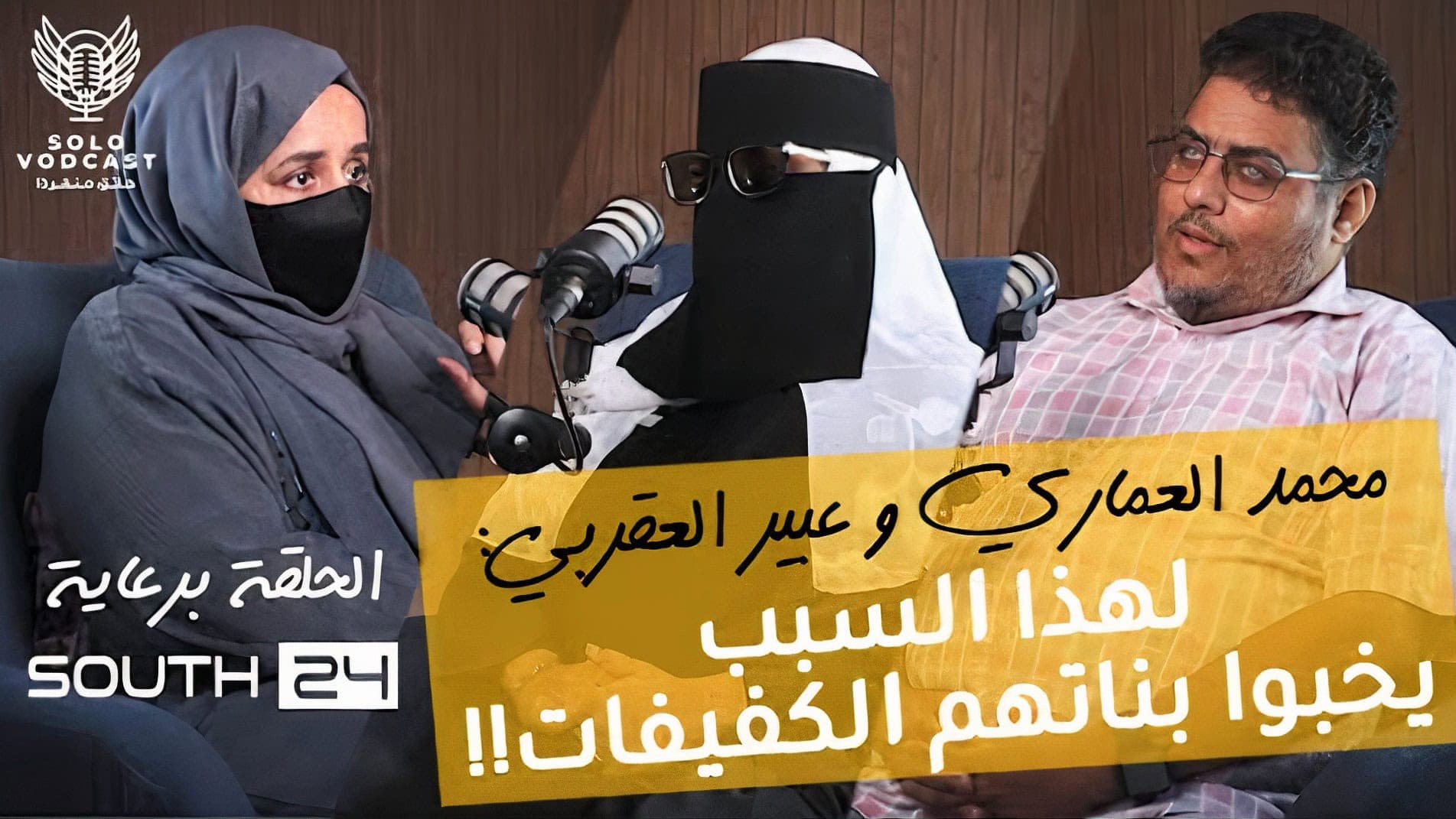
Episode Cover - Solo Podcast
Last updated on: 01-07-2025 at 1 PM Aden Time

|
|
Aden (South24 Center)
As part of a multi-faceted media and research project implemented by South24 Center for News and Studies with funding from the U.S.-based Urgent Action Fund, a special podcast episode titled "Why Do Some Families Hide Their Blind Daughters?" was released on May 29, 2025. Produced locally by (Solo Podcast) in Aden under official sponsorship from the Center, the episode was republished on South24's YouTube channel on Saturday, June 29.
This episode forms part of a series of media and research activities aimed at shedding light on disability issues and gender-based discrimination in Yemen, against the backdrop of worsening institutional and social fragility.
Hosted by media professional Tahani Al-Khadr, the episode featured Abeer Al-Aqrabi, head of the Al-Wafa Association for Care and Rehabilitation of Blind Women in Aden, and Mohammed Al-Amari, a journalist and human rights activist specializing in visual impairment issues. The discussion focused on the realities facing blind men and women in Yemen, particularly the educational challenges, social discrimination, lack of assistive services, and weak relevant official policies.
During the 90-minute episode, the guests discussed the main obstacles preventing the empowerment of the visually impaired, whether in home environments, educational institutions, or the job market.
Al-Aqrabi and Al-Amari presented examples from personal and field experiences that reflect the gap between the actual needs of the visually impaired and the available official or community responses. The episode revealed that challenges extend beyond infrastructure or assistive tools to deep-rooted cultural patterns that view disability as a burden or stigma.
Al-Aqrabi highlighted her personal journey, from losing her sight at an early age to self-education through alternative techniques, culminating in establishing a specialized association for blind women. She explained that her first attempt to establish a nationwide association was rejected, prompting her to launch "Al-Wafa Association for Care and Rehabilitation of Southern Blind Women" as a local initiative focusing on rehabilitating and empowering visually impaired women.
Meanwhile, Al-Amari shared his experience entering the media field despite disability-related obstacles. He noted that many media institutions initially refused to give him work opportunities, but he later developed a radio program dedicated to disability issues and launched the "Aden Platform for People with Disabilities" as a communication and advocacy channel.
The episode also addressed the failure of public policies to create a suitable environment for the blind in Yemen. The guests noted the lack of basic tools like Braille books, speech devices, or technical applications that would give the visually impaired greater independence. They pointed out that the absence of these tools leads to near-total dependence on family or personal memory, exacerbating feelings of isolation.
About Urgent Action Fund for Feminist Activism
For over 25 years, Urgent Action Fund for Feminist Activism has supported frontline feminist activists in protecting their communities and building sustainable movements based on justice, equality and liberation. The Fund adopts a flexible, inclusive approach that enables activists to respond immediately to threats and opportunities, care for themselves and their surroundings, and promote sustainable solutions to the most pressing crises and violations of our time.
The Fund is currently financing a Yemeni project implemented by South24 Center, including professional training for journalists, production of in-depth reports on disability, women's and climate issues, an upcoming specialized climate study, and other activities.
The podcast episode represented a model of balanced media approach combining personal narrative with objective analysis. The guests offered clear recommendations regarding the need to integrate people with disabilities into the job market, improve educational environments, and raise community awareness. They also emphasized the importance of having specialized, sustainably-funded associations to ensure continuity and expand societal impact.